No doubt my marketing team will be disappointed. They asked me to write a blog on my thoughts on key developments in the hydrogen and fuel cell industry in 2020 and what we should expect in 2021. This has been my tradition for the past six years. This year, however, I wanted to write about something more important.
The most important development – by far – in 2020 was the COVID-19 pandemic. We all know this. More than dominating the daily news headlines, COVID-19 profoundly and, in many cases, tragically marked the lives and livelihoods of our global community. COVID-19 will continue to be the top priority for governments, businesses, schools and families in 2021 as we continue to focus on health, safety and economic recovery.
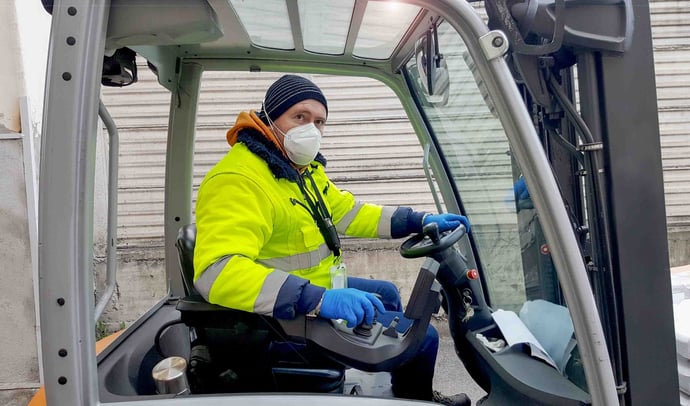
Even as vaccinations are rolled out and as stimulus plans provide an economic shot in the arm, we must acknowledge that we will not, ever, be returning to business as usual. How we live, work and socialize have fundamentally changed. In some cases, for the better. We should embrace some of the silver linings from a large, dark cloud in our history.
There are two important teachings from the COVID-19 virus that I want to comment on: compassion and urgency.
So why the focus on compassion and urgency? Because these will prove highly relevant as COVID-19 recedes as a global health crisis and as the world’s attention squarely (re)turns to the most pressing and existential issue facing humanity and the future of our planet – our climate crisis.
To combat the climate crisis, achieve net zero emissions, and transition to a sustainable planet and a circular economy, we must do this together. And we must do this with compassion and urgency.
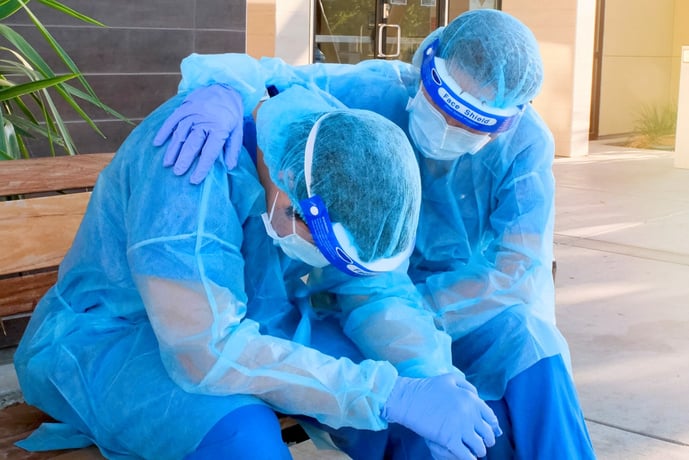
The importance of compassion
As often happens in a crisis, we learn who we are. During the COVID-19 pandemic, we were powerfully reminded of one of the cornerstones of humanity – compassion. We have seen many compelling examples of this, small and large, over the past year. People have come together to support each other, including family, friends, neighbours, coworkers and strangers. There have been touching stories of empathy, kindness and generosity.
There are inspiring stories of heroes working tirelessly on the frontlines of the pandemic, including nurses, doctors, police, fire fighters, ambulance drivers and paramedics. Many other heroes also emerged in customer-facing essential businesses, such as grocery, pharmacy, delivery, restaurants, utilities and essential manufacturing. By and large, these people have done an extraordinary job in difficult circumstances.
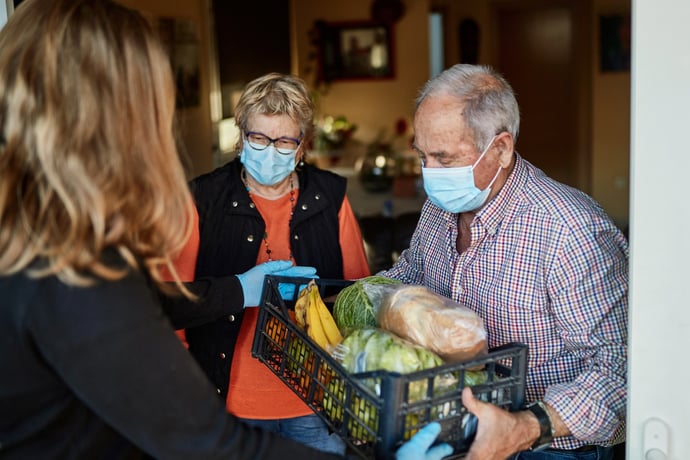
These examples all stir confidence moving forward. Now let me provide one personal example that really impacted me.
As some context, we are living in a time of growing anti-China sentiment, fueled in part by strong rhetoric from (outgoing) President Trump. Now, during this time, it would have been easy and understandable for Chinese companies to sheepishly keep their heads down. Yet, what I witnessed was something quite different.
Even with this pressure, many Chinese companies proved to be both brave and compassionate during the early days of COVID-19. Indeed, many of them stepped forward and offered help to foreign companies. And while some have questioned the motives of these Chinese companies, what I saw was sincerity and compassion.
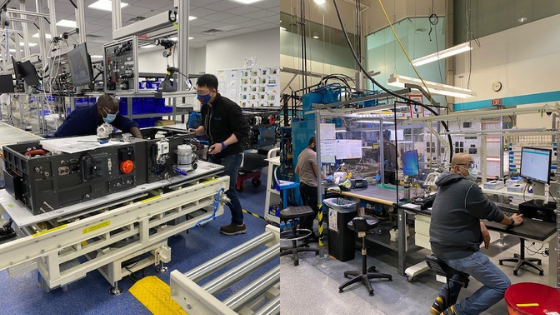
In my case, Chairman Tan of Weichai Power, our key Chinese partner, sent masks to protect our employees at Ballard at a time when we really needed them. This was an extraordinary gesture of friendship and kindness. I was highly grateful for this unsolicited support. I must also confess how embarrassed and ashamed I was that I didn’t think to offer similar compassion, help and support to our Chinese brothers and sisters in the very early days of the pandemic when they needed it.
But we learned from this. In our own small but intentional way, we tried to pay it forward by later providing donations of masks to hospitals and others, as we stabilized our own supply chain of masks.
My point here is simple. During COVID-19, people stepped forward with empathy, kindness and love. It also reminds us that governments and companies are not faceless. They are led by people. And when we need and demand action, leaders must step forward, do the right thing and be accountable.
What is also clear is that we will need compassion as we structure policies, change behaviours, and deploy innovative and disruptive technologies to address climate change. At the same time that we desperately need to reduce harmful emissions, we must also confront the challenge of continuing to help more people across the world, and particularly in developing countries, to pursue their dreams for a higher standard of living, including education, wellness, employment, housing and the resultant increase in global power consumption.
As we decarbonize energy, mobility and industry, we must thoughtfully and compassionately consider issues of environmental justice.
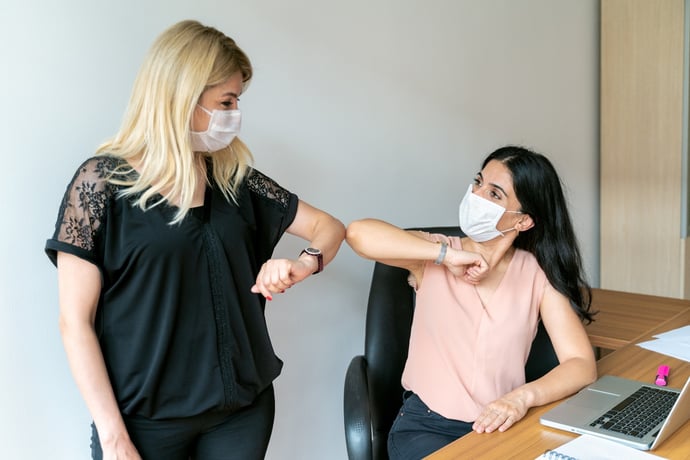
The role of urgency
COVID-19 also showed us how we can urgently mobilize people, communities, cities, provinces, states and nations to take unprecedented and difficult action when the stakes are at their highest. There are moving examples.
Thinking about how we were able to reorganize how we prioritize the delivery of medical supplies and logistics to rapidly serve those in critical need. Almost overnight we changed our approach to commerce and education. And we reimagined and reshaped how we productively work remotely while honouring connection and collaboration.
As we learned more about COVID-19 over the past year, new measures and protocols were introduced. In some cases, at lightning speed. This required a massive global response at different levels of government and business, in certain cases with significant coordination.
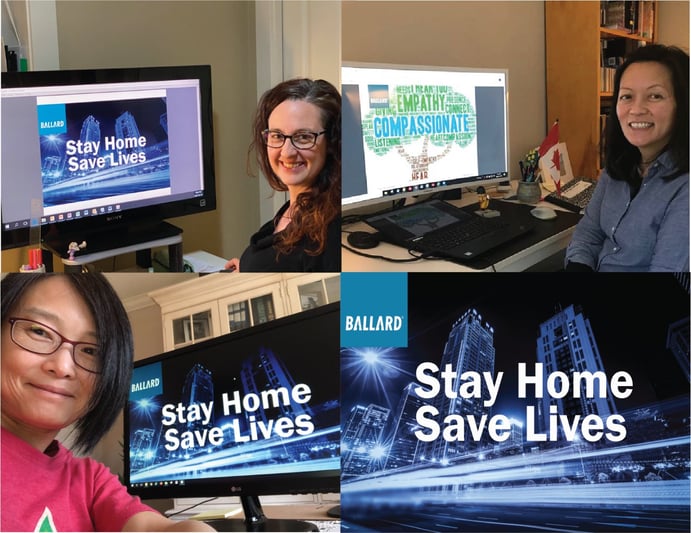
Think about the speed of setting up daily COVID-19 reports from health officials. Think about the mass production, procurement and deployment of personal protective equipment, including to the medical community.
Testing sprang up very quickly. In some countries, contact tracing was locked down with the use of technology. Governments reacted at atypical speed to provide wage subsidy or other pandemic financial support to individuals and companies impacted by the virus. And vaccinations – with seemingly high efficacy – have been developed in record time.
Of course, there have been notable and unacceptable failings that will require careful examination and scrutiny. However, I believe these reviews are unlikely to conclude that lack of urgency was the key barrier to protecting society and slowing the spread of COVID-19.
Rather, I expect the reviews will likely recognize the critical importance of strong, selfless, empathetic and inspirational leadership, with clear and consistent public messaging, and resolute measures that galvanize public alignment, support and action.
And we need to harness all of these qualities in order to face climate change head on. The urgency with which we’ve acted to address COVID-19 shows us what we can do when we pull together and accept that the old ways of doing things no longer work. Business and government leaders must take decisive steps to protect the world’s citizens from the impacts of climate disruption, just as they have with the pandemic.
Only when we add a massive dose of urgency to our situation, can we drive both rapid and effective outcomes.

What Do You Think?
I have strong faith in humanity, our kindness and our ingenuity to solve even the most challenging crises. I also have faith in the power of learning and staying positive. There are lessons from COVID-19 that can help us with our climate crisis, including compassion and urgency.
Please share with me what you learned from the COVID-19 pandemic that inspires you about the future of humanity and our planet. Are you, like me, more confident in our ability to address our climate crisis together, with compassion and urgency?